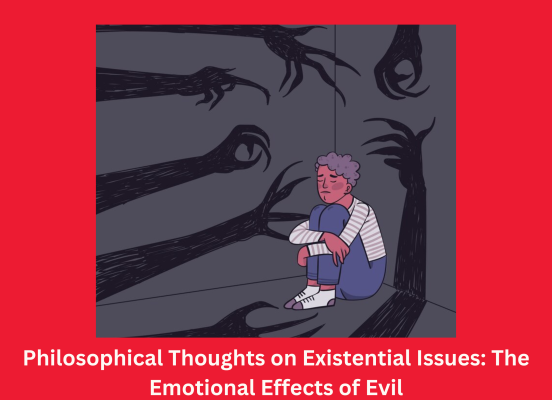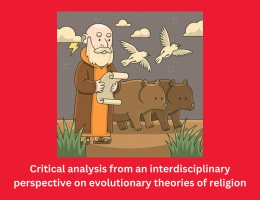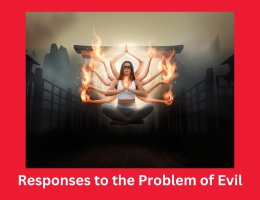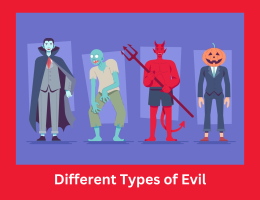
Philosophical Thoughts on Existential Issues: The Emotional Effects of Evil
- By admin --
- Sunday, 07 Apr, 2024
1. Introduction
Agents' perspectives on God are not the only matters impacted through their encounters with evil. People are also affected emotionally with the aid of evil. This sort of impact is every so often linked to the evil's existential dilemma. Perhaps there may be a valid cause for this correlation. An individual's severe, private war with God (or faith in God) within the face of evil is indicative of an existential trouble. Feelings of betrayal, hatred, sadness, grief, indignation, and so forth may be a number of its manifestations. People who're experiencing existential problems are often, but now not constantly, for my part affected by terrible evil of some kind, as Hasker puts it. Therefore, it makes experience to hyperlink the existential problem of evil with the particularly personal emotional consequences of evil. Nonetheless, existential issues are regularly neglected in debates of modern-day philosophy.Nonetheless, existential problems are regularly omitted in debates of modern philosophy.
Within this essay, I contend that theistic philosophers would possibly effectively address the existential catch 22 situation by using drawing on Robert Roberts' description of emotions as subject-primarily based construals. I contend that resolving the existential difficulty is crucial due to the fact focusing just on how evil influences sellers' conceptions of God constitutes an inadequate way to the evil trouble. Even in conditions when the unfavorable results of evil on an agent's perspectives approximately God or theism are lessened, sellers who have emotional difficulties due to their interactions with evil can also, as an example, find it hard to embody the claims of theism.
2.Two unique kinds of influence
Agents' views and emotions may be affected by encounters with evil. These could be known as the doxastic and non-doxastic impacts, respectively. In terms of the doxastic effect, dealers' views approximately God, the arena, and/or God's design can from time to time be impacted by means of their stories with evil. For example, the interaction can reason marketers to lose religion in God. Agents might also conclude, for instance, that there may be compelling proof to refute God's life or that the evil they discover is logically inconsistent with it. These retailers may want to conclude that God does not exist, or probably does not exist, based in this records. On the alternative hand, a contact with evil would possibly reason sellers to abandon particular theological convictions. For example, Roth contends that expertise the tragedies of records need to encourage theists to Give up the idea that God is perfect.
In terms of the non-doxastic impact of evil, human beings's feelings toward (or approximately) God can from time to time be impacted via their reviews with evil. They may also experience wounded, deceived, or depressed by God's seeming (in)action, or they could develop enraged at Him for permitting some evil or evils, and so forth. Given that both issues are very non-public, Hasker hyperlinks the nondoxastic impact to the existential catch 22 situation of evil. He states that people who are experiencing an existential disaster are often, though not usually, for my part tormented by terrible evil of some kind. Naturally, the nondoxastic impact and the existential catch 22 situation aren't extensionally equal. Evil interactions have the ability to have an effect on dealers deeply on each a doxastic and non-doxastic degree. However, in philosophical research of evil, the non-doxastic part of the existential catch 22 situation is usually left out.
3. Concern-based totally construals based totally on feelings
According to Roberts, emotions are a selected kind of construal, or difficulty-primarily based construals. Construals are conceptual perception, as outstanding from sensory belief, according to Roberts. Roberts uses Jastrow's famous duck-rabbit example—shown here—to help in making this distinction: Let's say that after someone perspectives this picture, they see a duck, while someone another sees a rabbit. Since their sensory data is equal, both people are looking at the identical item. They see matters in a different way, though. In other words, the dealers arrange the sensory information based totally on disparate notions and interpret it differently. According to Roberts, a construal is a form of belief or impression that arises from the mind's capability to mix the numerous additives of whatever that works as an entire to create an impression of the entire that it features as.
4. Ivan Karamazov's rebellion
Let's say we believe what Ivan says. He thinks that in the future, God will do some sizeable good as a way to make up for all the world's evils. God's remaining creation layout is connected to that excellent, justifying top.
Ivan, nonetheless, can't accept God's plan. It is discovered later that Ivan believes his very own love for humanity makes God's plan unwanted. Ivan can't get over his notion that God's plan is incorrect, despite the fact that he thinks the coolest it produces will ultimately make it applicable (specially because it entails the frightening maiming of human human beings inside the technique). Ivan's recognition of God's purpose is delivered about via the suffering, suffering, and devastation of humankind. As beside the point. Ivan believes that even whilst God is entirely justified in permitting the pertinent evils, that still isn't desirable enough.
It is simple to study Ivan's declaration to indicate that while God will in the end accomplish huge appropriate, He will do it via unethical or immoral methods. Therefore, God's reason is undesirable to the extent that it makes use of abhorrent strategies to reap a few top notch advantage. But I suppose this is a misinterpretation of Ivan's viewpoint. Ivan makes it clean that each one that has happened might be justified via the more good. It's now not that Ivan thinks God is using unethical strategies to perform a few vast benefit. Ivan claims to assume that God is justified, however he's not able to peer how that might be the case. And Ivan reports a intense existential crisis as a result of this perspective, which keeps him from having the capacity to (willingly) take part in God's advent plan. Ivan appears to be holding onto his convictions about God's plan that is, that it's miles justified to use Roberts' phrase. However, his conceptual understanding of God's reason as unwanted prevents him from accepting and upholding the theistic concepts. Stated otherwise, Ivan (and operatives including him) perceive the pertinent issues of the sector as being of this sort of horrifying kind that it seems not possible to provide any kind of correction, redemption, or justification. And due to the intensity of this impact, Ivan is inspired to "rebellion" this is, to reject God's plan, take part in it, and so forth.





